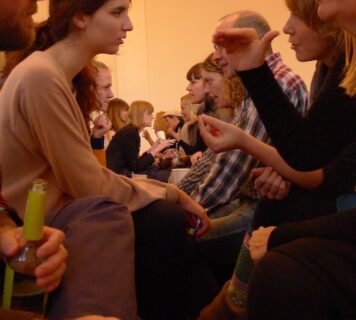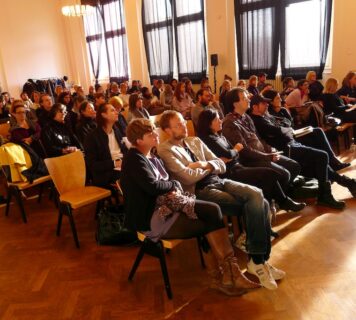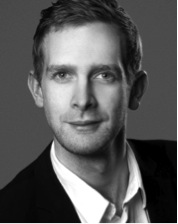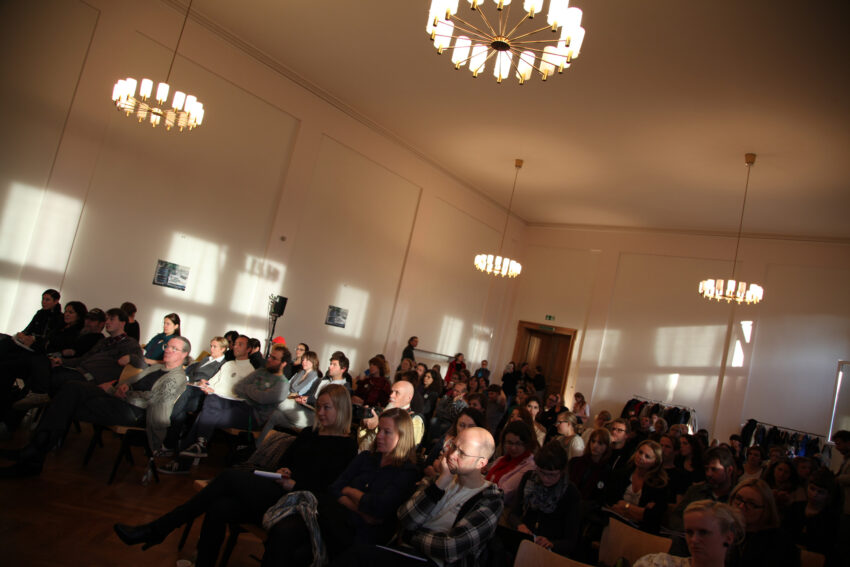




WORKSHOP – Cotton Futures: what will the cotton industry look like in 2025?
Friday 16.11.2012, 11.00 – 16.30
Moderation: Alexandra Perschau
Format: visionary, interactive brainstorm
There has been a lot of focus on cotton production in the last few years. Cotton has come under attack as a ’thirsty crop’ and a resource intensive fibre. However cotton remains the most popular natural fibre and still accounts for over a third of total global fibre production.
This workshop will give you a taster of what life in 2025 can look like for anyone involved in the Cotton supply chain. Step into possible future scenarios for cotton; see how current challenges in terms of price, land use, population growth and economic slowdown could play out in 2025 and what effect this will have on cotton production and the rest of the cotton supply chain.
The workshop will challenge what you think about 2025 and through different exercises give you the chance to experience working life in the 2025 Cotton industry. The workshop is a great opportunity to think about the long term future of cotton and textile supply.
The workshop is organized by ISC (Initiatives for Sustainable Cotton), a group of German based cotton initiatives who with backing from BMZ, The German Federal Ministry for Economic Cooperation and Development, have developed a Cotton Futures tool kit and a vision for the Cotton industry in 2025.
WORKSHOP – Recycling, the new organic?
Friday 16.11.2012, 11.00-13.00
Moderation: Norbert Henzel, Institute for Material Culture, University of Oldenburg
Format: lecture, discussion
The recycling market is developing rapidly. The waste of today is the resource of tomorrow. New techniques are used, and there are more possibilities to shape the life cycles of a garment. Meanwhile, there is still a lot of problems to solve, and the percentage of recycled garments has decreased over the last years.
What are the possibilities for designers to work with recycling? How to design a product in order to make it recycle-able after usage? And what role can the retail sector play? And last but not least, how will recycling change the esthetics and the cultural behavior of tomorrow?
WORKSHOP – Hacking for fashion: how new technologies can support transparency and traceability in the supply chain
Friday 16.11.2012, 11.00-13.00
Moderation: Sebastian Straube, sustainable innovation expert at BSD Consulting
Format: flash talks, brainstorm, group discussion
Flash talks by:
- Maurice Stanszus, founder WeGreen
- Anina, founder 360fashion.net
- Kavita Parmar, founder The IOU Project
Where in earlier days many companies could hide behind the anonymity of a production place far away, nowadays this information becomes more and more fluid and where workers rights are violated or hazardous chemicals used, this leads to bad publicity immediately. New and digital technologies are emerging and developing fast, and surely not all potentials have been used yet.
In what way can new technologies lead to more transparency and traceability in the supply chain? What tools are already around that could be used? What role could brand rankings, QR codes and consumer power in the internet play? And how to find the right balance between a smart marketing strategy and real openness in the internet era?
WORKSHOP – Working in a sustainable way with natural and synthetic fibres
Friday 16.11.2012, 14.30 – 16.30
Moderation: Prof. Friederike von Wedel-Parlow, Director MA Sustainability in Fashion at Esmod University Berlin
Format: flash talks, group discussion
- Peter Waeber, Bluesign
- Suzanne de Vall, Ploughboy Organics
- Beth Mortimer, Oxford Silk Group
The new generation of designers is confronted with finding new ressources and re-using common sources. To produce responsible and high-tech creations is maybe a challenge but a real chance for smart people. Over the last years, the options to source sustainable textiles have increased a lot. There is more on offer, and there is more openness to look beyond natural fibres.
If looking at natural and synthetic fibres, what is the environmental impact? Which materials to choose, which to exclude, and what should be considered when sourcing? What textile innovations are interesting while sourcing sustainably?
WORKSHOP – Transparency and traceability for brands and stores: certifications, social compliance and credibility
Friday 16.11.2012, 14.30 – 16.30
Moderation: Sebastian Straube, sustainable innovation expert
Format: flash talks, brainstorm, group discussion
Flash talks by:
- Lars Wittenbrink, store owner Grünewiese
- Magdalena Schaffrin, Ethical Fashion Show Berlin / Green Showroom
- Claudia Nikolai, Italian Chamber of Commerce Germany
A vibrant, pioneering market of sustainable fashion businesses have emerged over the last decade, built by a scene of social entrepreneurs who are more than ever before combining the demands of design and market with high social and environmental standards. Both stores and designers have an important role in defining what a sustainable product should be about. But after what criteria do they work? After what standards should a sustainable concept store buy and after what standards should a sustainable fashion brand produce?
In this workshop we are going to investigate what common criteria could be found when looking at different stores and brands, and where ideological differences or different policies lead to differences. Is it possible to develop common guidelines that work for all brands? How can sustainable fashion stores and brands bundle their strengths and consumer power to enforce better standards?


